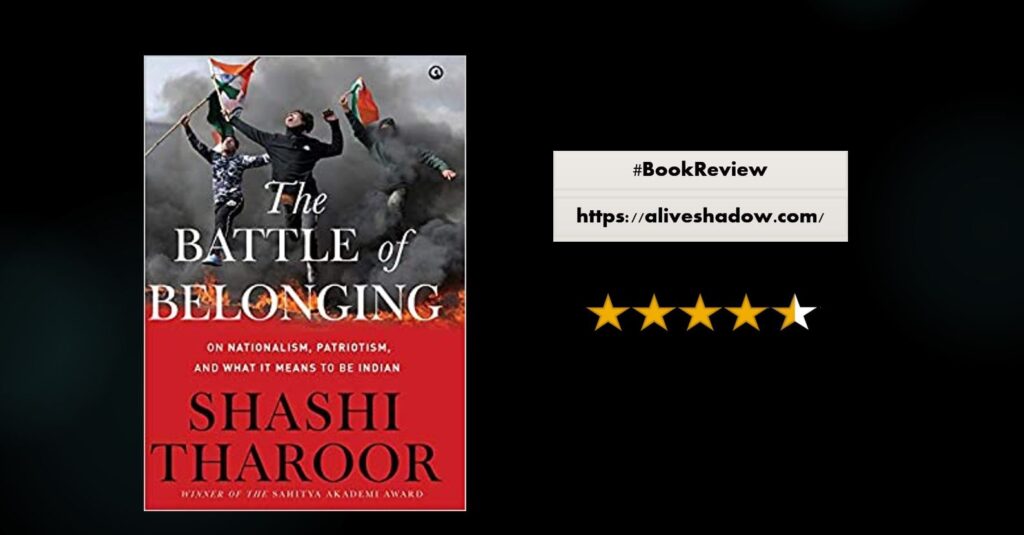The Battle of Belonging
Author: Shashi Tharoor
Publisher: Aleph Book Company
Rating: 4/5
Much like how ‘Why I am Hindu?’ turned out to be, ‘The Battle of Belonging’ traces the same pathway but eventually, leads to a different outcome. This book is like a convex lens, housing all the information and then finally converging to a point that, surprisingly, makes complete sense. Just like his previous books, this book too divides information into various segments- the actual point of view, the general point of view and the expected point of view. In other words, Mr Tharoor discusses the theory and practice of patriotism, its origin and its purpose. In the next part, he elaborates on what it means to be patriotic, how to become a part of the national movement and how much importance these words hold in our country. In the last part, he expresses his desire for a country where people understand the meaning of nationalism and patriotism correctly and work together for a better future.
The first part basically defines nationalism. Mr Tharoor traces the roots of Nationalism to World War I when the collapse of two large empires made people think of freedom, self-determination, independence and unity (nationalism). He quotes almost all the celebrated and politically strong people who form a part of his circuit and his own ideas and notions get lost somewhere in the narrative. The only relief comes when Mr Tharoor simplifies the ideas by explaining nine different types of nationalism. With that being said, he moves on to differentiate between ethnic and civic nationalism. He says, “Whereas ethnic nationhood inheres in the body, civic nationalism appeals to the mind…Civic nationalism usually requires liberal democracy in order to evolve. Ethnic nationalism seems to require of its adherents that they should literally not think beyond their genes.” Sounds convincing, isn’t it? Actually, it is! In fact, that’s what I admire about Mr Tharoor’s writing. Amidst quoting several celebrated people, his inferences often sound more pragmatic and logical. Remember his speech at the Oxford Union (British Does Owe Reparations)? He stresses how Indians are not willing to come out of the cloud of misjudgement wherein they believe that the elusive uniformity is a part of the national movement.
In the next section, his fierce examples and incessant power on words forces the readers to understand his apprehension regarding the disparity that exists beyond the invisible borders within the country. Stating several examples like that of the debate on the varying importance of Hindi in different parts of the country, the role of media in promoting the flaws that have developed creaks in the democratic walls that India is proud of and the role of political parties in bringing together citizens in this fight- Mr Tharoor makes his point very clear.
The last section is equally interesting, for Mr Tharoor moves on an unpremeditated path and admits that the debate between right and wrong has no silver line in sight. It doesn’t come as a disappointment as I found it quite justified and acceptable. Overall, The Battle of Belonging has an apt title and touches upon a very sensitive issue that we are all aware of yet refrain from discussing it. It is worth a try.
Best wishes to the author!
Buying link: Amazon

